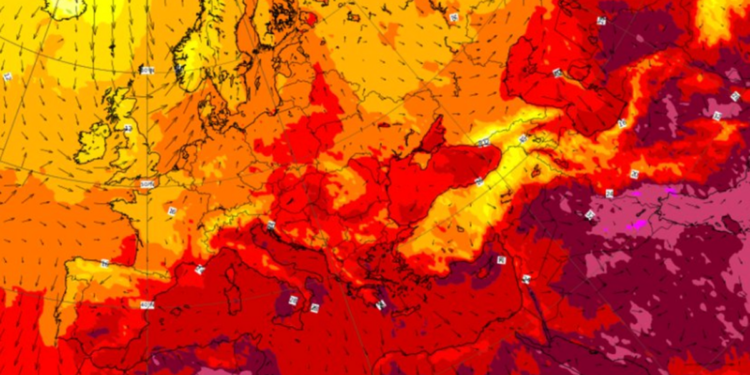Mr Deakin warned that, despite the improvement in temperatures, gusty winds could exacerbate the wildfire situation in the region. However, the anticipated cooling will at least bring temperatures closer to the average, providing much-needed relief to affected areas.
“And as we can see the change, we will also see the winds gusting up as well, which isn’t gonna help the wildfire situation here.”
“But at least as I say, the temperatures will be getting back closer to average, still plenty of sunshine.”
Scientists said a combination of factors, such as a stagnant jet stream, the El Nino phenomenon and the record-shattering average global temperatures caused by the climate crisis were all responsible for the extreme heatwaves sweeping three continents.
The jet stream over Europe had been in a “stationary position” in the last few days, experts said, which meant that the weather systems were kept in a holding pattern that made heat build up.
A recent study by the World Weather Attribution (WWA) said such heatwave conditions are more common now due to the heating of the planet by 1.2C since the 1800s due to greenhouse gas emissions.
Scientists have been warning that as global average temperatures continue to rise, heatwaves in Europe are becoming more frequent and stronger.
The WWA research showed that with the current heat, Europe, which is heating faster than the global average, already has a probability of facing extreme heat like the one currently persisting, every 10 years.
Source link : https://www.independent.co.uk/climate-change/news/europe-greece-fires-heatwave-how-long-end-b2383648.html
Author :
Publish date : 2023-07-28 07:00:00
Copyright for syndicated content belongs to the linked Source.


